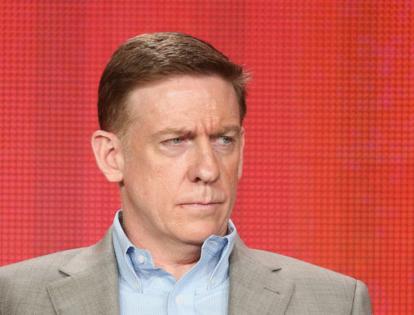Commentary: '60 Minutes' exit is just another day at the office
Published in Op Eds
When executive producer Bill Owens resigned from "60 Minutes," he was not forced out by President Donald Trump — at least not directly.
Rather, Owens bristled at increasing editorial oversight by CBS executives and those of its parent company, Paramount Global. His exit is a reminder of longstanding tensions between editorial and corporate interests in American journalism that have heightened in the Internet and Trump eras. Owens acknowledged as much in a meeting with staff, an audio recording of which was obtained by the New York Times.
“I do think this will be a moment for the corporation to take a hard look at itself and its relationship to us,” he said.
Faced with an increasingly lawless president who has leveraged federal power to exact revenge against his perceived enemies in the legal and higher education sectors, the media industry, too, finds itself in the crosshairs.
The storied CBS News magazine has been under fire since November, when Trump sued, claiming the program had favorably edited an interview with his 2024 electoral opponent Kamala Harris. He initially wanted $10 billion but doubled that in February, a hardball strategy seemingly designed to induce a nine-figure settlement from Paramount.
As the president is well aware, Paramount is in a particularly vulnerable position at the moment — the company’s controlling shareholder, Shari Redstone, has been working on a $8 billion merger with Skydance Media, owned by David Ellison (whose father, Oracle Corp. founder Larry Ellison, has been increasingly aligned with the Republican Party under Trump). That merger would need Federal Communications Commission approval, and on Thursday, the Wall Street Journal reported that Paramount is reportedly discussing diversity policy concessions — perhaps to further grease the wheels with the FCC.
Paramount’s fiduciary responsibilities to shareholders are increasingly at odds with CBS News’ journalistic imperative to cover the administration accurately. While the company has agreed to enter into mediation toward a settlement, Trump has continued to publicly rail against both CBS and 60 Minutes.
“They are not a ‘News Show,’ but a dishonest Political Operative simply disguised as ‘News,’ and must be responsible for what they have done, and are doing,” Trump posted on Truth Social recently. “They should lose their license!”
This isn’t the first time he has threatened a major U.S. broadcaster. Last September, following a weak debate performance against Harris, Trump called upon the FCC to revoke ABC’s broadcasting license.In December, as Trump prepared his return to the White House, the network agreed to pay $15 million toward his presidential library to settle a defamation claim he filed against ABC earlier last year. Two major newspapers, The Washington Post and the Los Angeles Times, have both recently shown a willingness to tailor their journalism in ways that raise questions about whether they were merely pandering to Washington's new power dynamics.
This sense of industrial coziness with the White House would be disconcerting under any presidential administration. But it is particularly jarring when there is an ever-increasing array of media choices that are continuing to fragment what was once a mass news audience. It’s also been widely reported how popular podcasts helped decide the 2024 election. And a Pew survey from November found that about 20% of adults in the U.S. said that they routinely got news from influencers on social media. That jumped to 37% for people under 30.
Since digital media often eschews traditional journalistic commitments to fairness and accuracy and social media companies don’t want the responsibility of being publishers, this trend is troubling. Audiences, indifferent or uncertain about the quality of information they receive, can be left ill-informed — or entirely uninformed.
Journalists are still producing valuable reporting, analysis and commentary, of course.
But legacy U.S. journalism has historically thrived when its financial foundations and constitutional protections have been robust. With both of those pillars under siege due to the digital revolution and Trump's attacks, the industry has reached an existential crossroads. Just ask Bill Owens.
____
This column reflects the personal views of the author and does not necessarily reflect the opinion of the editorial board or Bloomberg LP and its owners.
A.J. Bauer is an assistant professor of journalism at the University of Alabama. He is the author of "Making the Liberal Media: How Conservatives Built a Movement Against the Press," forthcoming from Columbia University Press.
©2025 Bloomberg L.P. Visit bloomberg.com/opinion. Distributed by Tribune Content Agency, LLC.




























































Comments